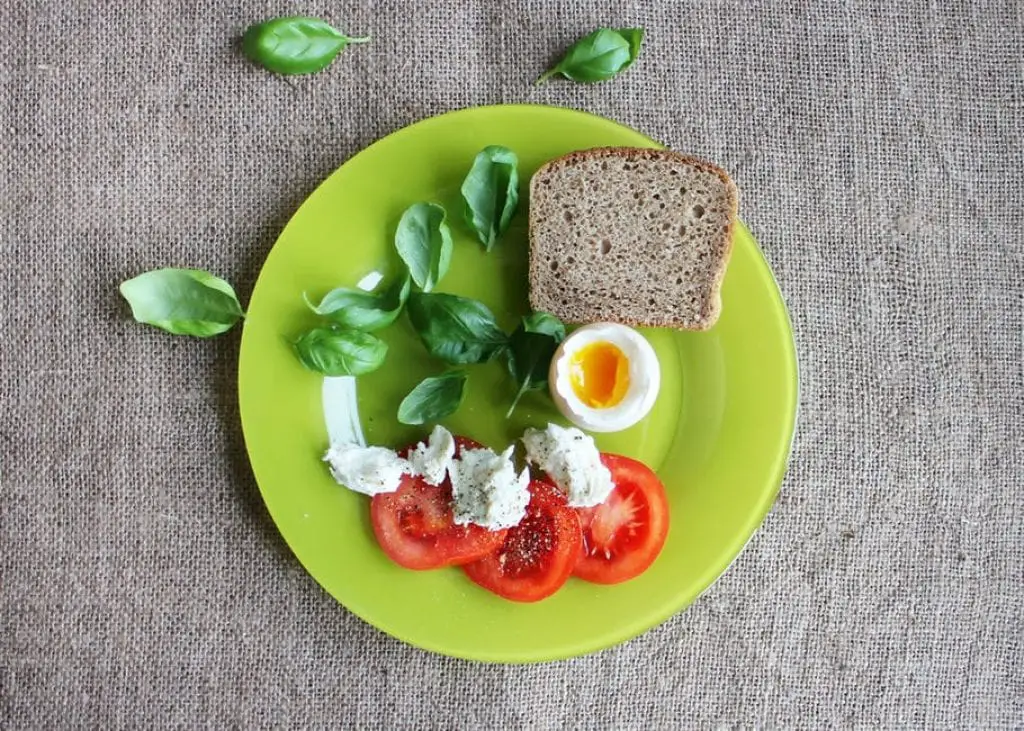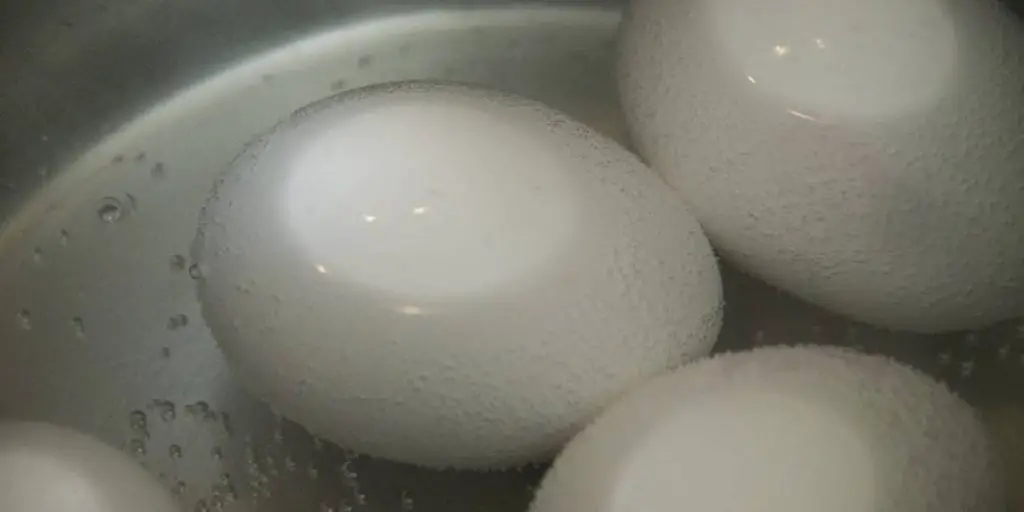The easiest and quickest way of learning how to cook will be by the learning of boiling an egg. Yes, indeed many of us do not know how to cook any dish or delicacy and that is ok. However, you did agree with me that there is no excuse for not knowing how to boil a simple egg or yet still how to soft boil an egg in the microwave.

Aside from knowing how to boil an egg, it is the easiest and quickest breakfast menu you could easily count on making early in the morning to impress that date you brought over last night from the party or simply because it does not require many incidents or a know-how in doing it.
The consumption of boiled eggs for breakfast for most is an everyday activity or a regular early morning menu. Though some find it as an easy way of preparing something to eat in the morning, some individuals do boil eggs due to its nutritional value. This is often so because one piece of boiled egg gives you a balanced meal of good calories, great amount of protein, a negligible intake of carbohydrates and the perfect limit of fat all need for the body to function well.

Now, not to bore you with nutritional values of egg and why eating it is important, I will move right on to knowing how to soft boil an egg in a microwave. However, since you did like a soft-boiled egg you should make sure you do just that and not turn the egg into a mullet or hard-boiled egg state. Soft boiled eggs or coddled eggs are pretty hard to achieve when the right procedure, technique and in this case temperature is not followed, as they are often supposed to be soft and have a gooey yolk. Due to its delicate nature, there are various methods of cooking it which arose through trial and error for many centuries. Most make use of boiling water on a gas or electric stove for the boiling of eggs, but in this case, we would be making use of a microwave. But making use of a microwave does give one control over time and power levels, something that you can’t easily achieve with a stove.
You Can Check It Out to Keep Eggs From Sticking?

A microwave is indeed a great tool for the making of eggs, despite what many think. In fact, it is the most convenient and if not fastest way of making eggs, that is if you are having problems with your electric stove or just happen to run out of gas for your gas operated stove.
Ingredients:
- Microwave bowl (Container)
- 1 egg
- Water
Preparations:
- Using your microwave bowl, which should be oval and deep enough to allow the egg to be fully submerged when water is placed into it. The bowl should be deep enough not only for the submerging of the egg but to also allow for the boiling of water without spillage in the microwave.
- Now, this step is very important, as there have been problems encountered here. Do not start the boiling of your egg with cold water. It is always advisable to boil water elsewhere and add it to the container in which your egg is placed. Starting with hot water reduces the high amount of risk of pressure building up inside the egg, as the liquid inside an egg boils slower than that of a normal water. So, in order to meet the two different boiling temperatures, is best you pre-boil a little amount of water and add it to that of the container with the egg.
- Prick the egg with the use of a paper clip. Although this step is optional to many, it is essential in getting the right pressure in making your soft-boiled egg. You use the paper clip to pierce the egg in a couple of different places which will, in turn, reduce the pressure that can accumulate once the egg starts to boil.
- Gently put your egg in the hot or pre-boiled water, ensuring the full emergence of the egg in the container.

- Now, not saying there will be an explosion while microwaving, however, it is advisable to place a plate to cover the top of the container, before placing it in the microwave. This is method is not only to contain potential mess that may occur during the boiling of the egg but to also act as an insulator to the container and aid in the boiling of the water faster.
- Place your timer for the microwaving to 1 minute. Some might place it to a minute and 15 seconds, but it is advisable to not make it more than a minute. Unfortunately, due to differently advanced microwaves and other factors, it would or might take a good amount of experiment to get it right. As there are just a few seconds between how to soft-boil egg in microwave and how to get it into a hard-boiled egg.
- Once your timing is perfect, get the container with the egg still in it out of the microwave and allow it to rest for about 3 minutes so as to allow even cooling. You then place the egg in cold water to stop the cooking process and gently peel off the shell from it.
Aside from the above steps, one could also acquire a soft-boiled egg by carefully cracking an egg ramekin mixed with butter and microwaving it for less than a minute.
So as easy as boiling water itself, following the steps above would eventually give you a nice soft boil egg. However, it is to know the use of microwave for the boiling of eggs although a great idea, can be extremely dangerous. Moisture and steam that builds up undercooked eggs can be released and quickly lead to an explosion in the microwave and also microwaving an egg in its shell increases this potential. Explosions can cause damages to your microwave or as far as serious injuries including permanent loss of vision.
Frequently Asked Questions
Can You Cook an Egg in Its Shell in the Microwave?
there are a few methods that you can use if you need to. One option is to place the egg in water or broth and heat them up until they reach a safe temperature, which may vary depending on the model of microwave that you’re using. Make sure to watch the egg carefully so that it doesn’t overcook or burn.
Another method involves putting an uncooked egg into a mug and then filling it with warm water or broth. Put this mug in the microwave and wait about 12-15 minutes, until the eggs are cooked through. Again, be careful not to overheat them or they will likely end up being rubbery instead of fluffy}.
Can You Microwave Boiled Eggs Without Shell?
Yes, you can microwave boiled eggs without the shells. Simply put them in a single layer on a plate and microwave on high for 1-2 minutes, or until they are cooked through. You can also place them in an oven preheated to 500 degrees Fahrenheit for 10-12 minutes, or until they are cooked through.
Why Did My Egg Explode in the Microwave?
There are a few potential reasons why your egg could have exploded in the microwave. The most common cause is overheating, followed by moisture buildup and then contamination. Overheating can occur if there’s not enough space in the oven or microwave to vaporize the water droplets that form when foods cook. This leaves them standing on top of each other, which can lead to rapid heating and eventual explosion. Moisture buildup may occur if food is left sitting in an over-filled container or if it’s covered with a wet object such as a kitchen towel. Contamination occurs when bacteria grows between two pieces of food that are touching one another, leading to mold growth and spoilage (or even Explosion).
If you’re still experiencing problems with your egg exploding after following these simple tips, don’t hesitate to contact your homeowner’s insurance company or call emergency service for help!
Is It Better to Use Milk or Water in Scrambled Eggs?
It depends on the recipe you are using. Milk is generally used in recipes that require a heavier texture, such as French toast or omelets. On the other hand, water is usually used for dishes that are lighter and more fluffy, such as scrambled eggs.
In general, though, it’s typically preferable to use milk when making traditional dishes where a denser consistency is desired.








